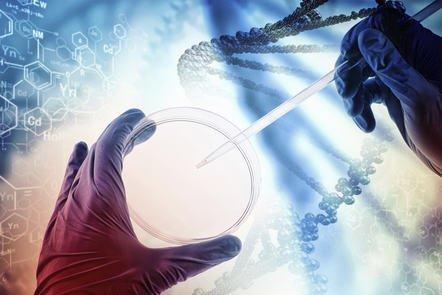MOOC List is learner-supported. When you buy through links on our site, we may earn an affiliate commission.

MOOC List is learner-supported. When you buy through links on our site, we may earn an affiliate commission.
The days of peering down the microscope to detect chromosome abnormalities are gone, replaced by chromosome analysis at the genomic level. Invasive Down syndrome tests in pregnancy have made way for the evaluation of fetal DNA in maternal blood. And instead of laborious gene-by-gene targeted sequencing, we can now sequence all of our genes in parallel in a single experiment.
Understand and apply molecular genetic techniques
This postgraduate-level course, in combination with Genomic Technologies in Clinical Diagnostics: Next Generation Sequencing Technologies, will help you understand these new and established genetic technologies, and their application to clinical practice.
This course focuses on molecular techniques. By the end, you will be able to demonstrate knowledge and applicability of the molecular principles behind:
- array comparative genomic hybridisation (array CGH);
- karyotyping;
- fluorescent in situ hybridisation (FISH);
- Southern blotting;
- multiplex ligation probe amplification (MLPA);
- polymerase chain reaction (PCR) and Sanger sequencing;
- quantitative fluorescent PCR (QF-PCR);
- single nucleotide polymorphism (SNP) genotyping and genome wide association studies (GWAS);
- and the extraction and analysis of cell free fetal DNA, including non-invasive prenatal testing (NIPT).
Through practice exercises each week, you will evaluate which laboratory investigations are most suitable for a given clinical scenario.
What topics will you cover?
- Polymerase chain reaction (PCR)
- Sanger sequencing
- Southern blotting
- Multiplex ligation probe amplification (MLPA)
- Array comparative genomic hybridisation (array CGH)
- Karyotyping
- Fluorescent in situ hybridisation (FISH)
- Quantitative fluorescent PCR (QF-PCR)
- Single nucleotide polymorphism (SNP) genotyping and genome wide association studies (GWAS)
- The extraction and analysis of cell free fetal DNA, including non-invasive prenatal testing (NIPT).
What will you achieve?
By the end of the course, you'll be able to...
- Demonstrate knowledge and applicability of the molecular principles behind PCR/Sanger sequencing; Next Generation Sequencing; MLPA/MS_MLPA; Southern blotting; array CGH; FISH; karyotyping; the extraction and analysis of cell free fetal DNA and QF-PCR
- Evaluate which laboratory investigation(s) is(are) most suitable for a given clinical scenario
- Demonstrate an in-depth understanding of the methodology of at least four molecular genetic techniques
MOOC List is learner-supported. When you buy through links on our site, we may earn an affiliate commission.
MOOC List is learner-supported. When you buy through links on our site, we may earn an affiliate commission.
